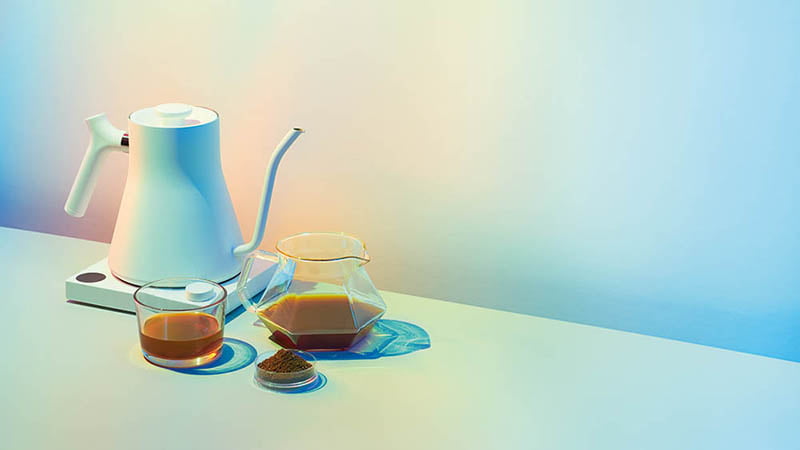In the future of coffee, technology and custom will work together so well that you can smell progress in every sip.
If I could make an identical copy of you, would that still be you? What is the real thing and what is a copy? It might seem strange to read these graduate-level, philosophical questions with a sci-fi twist in a coffee magazine, but they are the right questions to ask in this time of food science.
Scientists in Finland recently recreated coffee in a lab, using just a coffee plant and equipment that could replicate cells on a massive level. “‘Artificial coffee’ is about combining flavours,” the leader of this scientific team, Heiko Rischer, tells me. “What we are doing is 100% coffee, just made in a different way.”
Five years ago, Caffeine explored the potential of lab-made or molecular coffee and the outlook wasn’t great. In order to replicate a coffee beverage, Christopher Hendon, a chemist at the University of Oregon who’s known as the resident scientist of speciality coffee, told us huge quantities of coffee would have to be brewed, individual chemical compounds isolated and then the whole thing recreated using pure chemicals. To make such a beverage would be “immensely expensive” he said, and pointlessly difficult. This is not the method that Dr. Rischer has developed.
The team of scientists at VTT Research in Finland grows coffee using a more elegant and direct process called “cellular agriculture”. The lab reproduces cells from an arabica coffee plant in a bioreactor. Almost like culturing yoghurt or sourdough, the method multiplies coffee cells to create something that is, in DNA and structure, indistinguishable from regular coffee. Similar methods have already been used to produce animal-free meat, gelatin and milk. This “coffee” is first grown and then roasted, just like beans. But this all leaves me asking: is this an ersatz coffee or is it the real deal?
When we think of coffee substitutes one word comes to mind: chicory. We all know that chicory is not and has never been coffee. However, its bitter herbal taste has often helped unscrupulous traders to pad out their ground coffee to cut costs. In fact, just over a century ago, half of all coffee consumed in Germany was a mixture of chicory, wheat, barley and who knows what else.
Nowadays, such doctoring is almost unheard of. However, for generations these same mixtures used to dupe coffee drinkers have been promoted by dietitians and food manufacturers, including the cereal maker WK Kellogg, as a “healthier” alternative to coffee. More recent scientific endeavours have shown that coffee in fact helps protect us from a wide range of health problems, from heart failure to cancer.
So if molecular coffee isn’t better for us or cheaper, what is its appeal? Well, if done right, a lab-made coffee should have a much smaller environmental footprint and could, in Dr Rischer’s words, “end the exploitation of [coffee growing] communities.”
In this world it is no longer coffee itself that is being replaced but the farmers, the farmland and the supply chain. Bioreactors require only electricity to operate, so a renewably powered facility would have a minuscule carbon output. Maricel Saenz of Compound Coffee, a US-based company focusing on lab-made foods, states that they “can produce coffee with a tenth the emissions of regular coffee”.
However, this may be a moot point. A 2020 report from United Baristas calculated that most of the carbon footprint in our daily cup is created after the coffee docks in the importing country, and primarily by the milk and espresso machine. Only 25% to 33% of the carbon is created at origin.
What would happen, though, in a world where coffee farmers were put out of business by foreign food science companies? Their supposed exploitation might end, but would their income disappear too? Would those farmers who could focus on higher-end coffees be able to build sustainable businesses for a more niche speciality market? Or would a lower demand for farm-grown coffee cause untold economic damage? It’s even possible that in the need to secure what revenue they could from their remaining land, farmers would allow farms and semi-forested coffee lands to be further deforested for lumber.
While molecular coffee is undoubtedly less harmful to our environment than conventionally grown coffee, there are too many uncertainties to say with total confidence that adopting it would be a net positive for the climate – let alone for the people who rely on coffee for their income.

